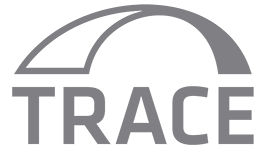TRACE’s annual Global Enforcement Report (GER) provides graphic and textual analyses of all known enforcement events (including investigations as well as enforcement actions*) since the first bribery cases were prosecuted in the United States following the enactment of the U.S. Foreign Corrupt Practices Act.
The 2016 GER, TRACE’s seventh annual compilation, provides anti-bribery enforcement data from 2016 and summarizes 40 years of anti-bribery enforcement activity.
Download the complete 2016 GER here.
U.S. Foreign-Bribery Enforcement Doubled from 2015
According to the 2016 GER, the U.S. amplified its recent trend of increased enforcement actions concerning alleged bribery of foreign officials, undertaking a total of 30 such actions — twice as many as in 2015, and three times the 2013 count. Overall, from 1977 to 2016, the United States had 225 enforcement actions — almost 70 percent of the total 325 enforcement actions concerning alleged bribery of foreign officials taken to date. Open U.S. investigations into foreign bribery are dominated by allegations of prohibited activity in Asia (46 percent) and the Americas (25 percent), with the remainder involving Europe (17 percent), Africa (8 percent) and the Middle East (4 percent).
U.K. Remains the Leader in Non-U.S. Foreign-Bribery Investigations and Enforcement Actions
There has also been a rise in enforcement actions by non-U.S. jurisdictions, which more than doubled between 2015 and 2016 to a total of 10, reflecting the ongoing trend of increased adoption of anti-corruption legislation across the world. European countries remain at the forefront of this trend, together accounting for 42 percent of all open investigations, compared to the 46 percent being conducted by the U.S. The United Kingdom remains the leader within Europe with 29 open investigations, followed by Germany with 17.
Non-U.S. Actions Involving Bribery of Domestic Officials Fall Heavily on the Engineering/Construction Industry
Countries outside of the U.S. have maintained their enforcement efforts against the acceptance of foreign bribes by domestic officials, with current investigations outstripping past enforcement actions by a factor of more than two. As was the case last year, Brazil leads the way with 22 open investigations, followed by India (13), China (12) and Nigeria (10). Domestic enforcement appears to fall more heavily on certain industries than foreign enforcement, with Engineering/Construction receiving the most attention (both in past enforcement actions and in ongoing investigations), followed by the Extractive Industries and Manufacturing/Service. Foreign enforcement, in contrast, has been predominantly focused on the Extractive Industries, though Engineering/Construction and Transportation/Communications are almost as well represented in current investigations.
“2016 was a record year for global anti-bribery enforcement,” said Alexandra Wrage, president of TRACE International. “The United States has been concluding enforcement actions at an unprecedented rate, other jurisdictions have been stepping up their prosecution rates as well, and new anti-corruption laws continue to be passed worldwide. Although there may be short-term fluctuations in these trends, we believe this represents the continued development of a global consensus that transnational bribery will not be tolerated.”
_____
 TRACE International and TRACE Incorporated are two distinct entities with a common mission to advance commercial transparency worldwide by supporting the compliance efforts of multinational companies and their third-party intermediaries. TRACE International is a nonprofit business association that pools resources to provide members with anti-bribery compliance support while TRACE Incorporated offers both members and non-members customizable risk-based due diligence, anti-bribery training and advisory services. Working alongside one another, TRACE International and TRACE Incorporated offer an end-to-end, cost-effective and innovative solution for anti-bribery and third-party compliance. For more information, visit www.TRACEinternational.org.
TRACE International and TRACE Incorporated are two distinct entities with a common mission to advance commercial transparency worldwide by supporting the compliance efforts of multinational companies and their third-party intermediaries. TRACE International is a nonprofit business association that pools resources to provide members with anti-bribery compliance support while TRACE Incorporated offers both members and non-members customizable risk-based due diligence, anti-bribery training and advisory services. Working alongside one another, TRACE International and TRACE Incorporated offer an end-to-end, cost-effective and innovative solution for anti-bribery and third-party compliance. For more information, visit www.TRACEinternational.org.













